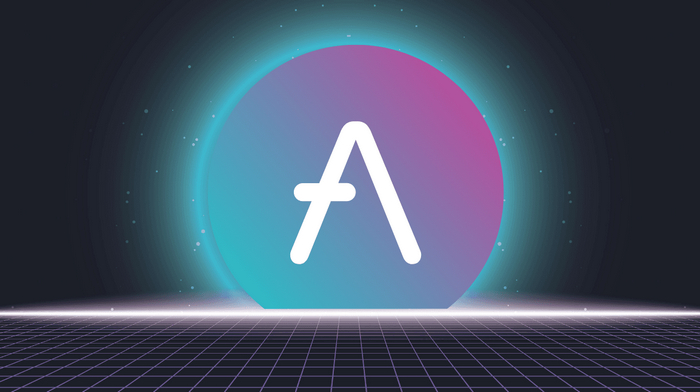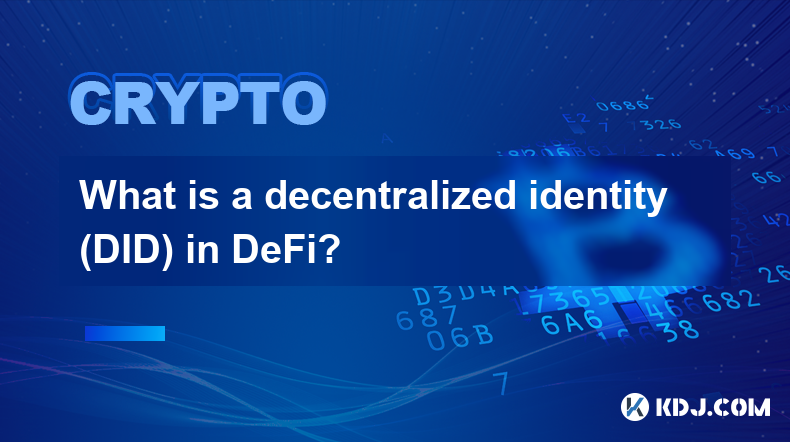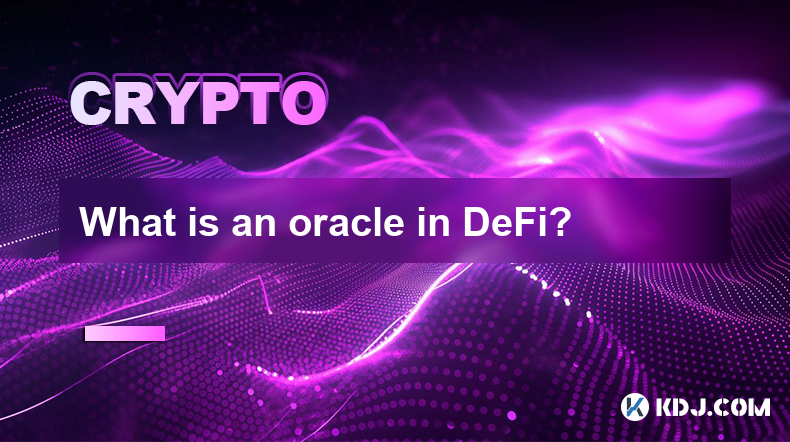-
 Bitcoin
Bitcoin $83,012.8303
-2.44% -
 Ethereum
Ethereum $1,812.1993
-4.53% -
 Tether USDt
Tether USDt $0.9999
-0.01% -
 XRP
XRP $2.0527
-3.54% -
 BNB
BNB $595.2316
-2.35% -
 Solana
Solana $119.1523
-5.78% -
 USDC
USDC $1.0001
0.01% -
 Dogecoin
Dogecoin $0.1652
-4.65% -
 Cardano
Cardano $0.6463
-4.29% -
 TRON
TRON $0.2355
-1.04% -
 Toncoin
Toncoin $3.8742
-4.17% -
 UNUS SED LEO
UNUS SED LEO $9.3798
1.85% -
 Chainlink
Chainlink $13.1078
-6.11% -
 Stellar
Stellar $0.2611
-3.50% -
 Sui
Sui $2.3600
-1.52% -
 Avalanche
Avalanche $18.2065
-7.08% -
 Shiba Inu
Shiba Inu $0.0...01221
-3.01% -
 Hedera
Hedera $0.1642
-3.13% -
 Polkadot
Polkadot $4.0111
-3.36% -
 Litecoin
Litecoin $82.3312
-2.10% -
 MANTRA
MANTRA $6.3136
0.40% -
 Bitcoin Cash
Bitcoin Cash $294.6627
-4.16% -
 Bitget Token
Bitget Token $4.5408
-2.64% -
 Dai
Dai $0.9998
-0.02% -
 Ethena USDe
Ethena USDe $1.0000
0.01% -
 Pi
Pi $0.6609
-6.67% -
 Hyperliquid
Hyperliquid $12.1927
-7.51% -
 Monero
Monero $216.1969
-0.11% -
 Uniswap
Uniswap $5.9167
-5.23% -
 Aptos
Aptos $5.1762
-3.31%
Where to buy AAVE coin? Inventory of AAVE coin trading platform
AAVE coins are available for purchase on a wide range of trading platforms, including centralized exchanges (CEXs), decentralized exchanges (DEXs), peer-to-peer (P2P) marketplaces, and crypto brokers.
Oct 01, 2024 at 07:00 pm

How to Acquire AAVE Coins: A Comprehensive Guide to Trading Platforms
AAVE, a decentralized finance (DeFi) platform, offers a native token known as the AAVE coin. It is widely traded on various cryptocurrency exchanges. Here is a detailed guide to where and how you can buy AAVE coins:
1. Centralized Exchanges (CEXs)
Centralized exchanges are platforms that connect buyers and sellers of cryptocurrencies in a centralized environment. Here are some popular CEXs that list AAVE:
- Binance
- Coinbase
- Kraken
- Huobi
- OKX
2. Decentralized Exchanges (DEXs)
Decentralized exchanges are peer-to-peer marketplaces where users can trade cryptocurrencies directly without the involvement of an intermediary. AAVE is available on several DEXs, including:
- Uniswap
- PancakeSwap
- SushiSwap
- 1inch
- Kyber Network
3. Peer-to-Peer (P2P) Marketplaces
P2P marketplaces facilitate direct transactions between users. This method provides more flexibility and the potential for lower fees. Some popular P2P marketplaces for AAVE include:
- LocalBitcoins
- Paxful
- Binance P2P
- CoinCola
4. Crypto Brokers
Crypto brokers are intermediaries that offer services for buying and selling cryptocurrencies. They can provide a more streamlined and user-friendly experience, but they may charge higher fees than exchanges or DEXs. Consider using reputable brokers such as:
- eToro
- Crypto.com
- Voyager
- Robinhood
Steps to Buy AAVE Coin
- Create an account: Sign up for an account on the chosen platform and complete their verification process.
- Fund your account: Deposit funds into your account using supported payment methods such as bank transfer, credit/debit card, or other cryptocurrencies.
- Place a buy order: Locate the AAVE trading pair and enter the desired amount and price. Review the order details and confirm the transaction.
- Store your AAVE coins: After the purchase is complete, withdraw your AAVE coins to a secure cryptocurrency wallet for safekeeping.
Conclusion
AAVE coins can be purchased through various trading platforms, including centralized exchanges, decentralized exchanges, peer-to-peer marketplaces, and crypto brokers. Choosing the best platform depends on factors such as regulation, fees, ease of use, and available trading pairs. By following the steps outlined in this guide, you can acquire AAVE coins and participate in the growing DeFi ecosystem. Remember to research and choose a platform that aligns with your needs and risk tolerance levels.
Disclaimer:info@kdj.com
The information provided is not trading advice. kdj.com does not assume any responsibility for any investments made based on the information provided in this article. Cryptocurrencies are highly volatile and it is highly recommended that you invest with caution after thorough research!
If you believe that the content used on this website infringes your copyright, please contact us immediately (info@kdj.com) and we will delete it promptly.
- Gate.io—a leading global cryptocurrency exchange—choose Oracle Red Bull Racing for debut partnership in Formula One.
- 2025-04-03 08:15:12
- First Digital US dollar-pegged stablecoin (FDUSD) depegs from the US dollar
- 2025-04-03 08:15:12
- Cardano Price Hits a Tipping Point, Caught Between Bullish Optimism and Growing Bearish Pressure
- 2025-04-03 08:10:13
- Circle, the Company Behind USDC Stablecoin, Files for an IPO
- 2025-04-03 08:10:13
- VanEck Has Officially Filed for a BNB ETF in Delaware, Marking the AUM's First Attempt to Create a Dedicated ETF Fund for the Token
- 2025-04-03 08:05:12
- The Next Big Meme Coin? Meet Dragoin ($DDGN), a Game of Thrones-Themed Play-to-Earn Telegram Game
- 2025-04-03 08:05:12
Related knowledge

What is a decentralized identity (DID) in DeFi?
Mar 23,2025 at 11:57am
Key Points:Decentralized Identifiers (DIDs) offer a self-sovereign approach to digital identity management, crucial for DeFi's privacy and security needs.DIDs operate independently of centralized authorities, empowering users with control over their data.Integrating DIDs into DeFi applications enhances user privacy, reduces reliance on intermediaries, a...

What does "composability" mean in DeFi?
Mar 14,2025 at 12:36pm
Key Points:Composability in DeFi refers to the ability of different decentralized finance (DeFi) protocols to interact and combine seamlessly, creating novel financial products and services.This interoperability is a core tenet of the DeFi ecosystem, fostering innovation and efficiency.Understanding composability requires exploring its mechanisms, benef...

What is token economics in DeFi?
Mar 14,2025 at 03:20am
Key Points:Token economics in DeFi defines how tokens are used to incentivize and govern decentralized finance (DeFi) protocols.It encompasses token utility, distribution mechanisms, and economic models designed to ensure sustainability and growth.Understanding token economics is crucial for evaluating the long-term viability and potential risks of DeFi...

How are transaction fees calculated in DeFi?
Mar 14,2025 at 04:25am
Key Points:DeFi transaction fees vary significantly depending on the specific protocol, network congestion, and the complexity of the transaction.Gas fees, a crucial component, are paid in the native token of the blockchain (e.g., ETH on Ethereum).Factors influencing gas fees include the type of transaction, data size, and network demand.Protocols often...

What is an oracle in DeFi?
Mar 22,2025 at 06:50am
Key Points:Oracles bridge the gap between on-chain and off-chain data in DeFi, providing real-world information to smart contracts.Different oracle types exist, each with its own strengths and weaknesses, including centralized, decentralized, and hybrid oracles.Security and reliability are crucial concerns for oracles, as vulnerabilities can lead to sig...

What is a cross-chain bridge? What is its role in DeFi?
Mar 14,2025 at 10:00am
Key Points:Cross-chain bridges facilitate the transfer of assets between different blockchains.They are crucial for DeFi's interoperability, allowing users to access diverse applications and liquidity pools across various networks.Several types of cross-chain bridges exist, each with its own security and scalability trade-offs.Understanding the risks as...

What is a decentralized identity (DID) in DeFi?
Mar 23,2025 at 11:57am
Key Points:Decentralized Identifiers (DIDs) offer a self-sovereign approach to digital identity management, crucial for DeFi's privacy and security needs.DIDs operate independently of centralized authorities, empowering users with control over their data.Integrating DIDs into DeFi applications enhances user privacy, reduces reliance on intermediaries, a...

What does "composability" mean in DeFi?
Mar 14,2025 at 12:36pm
Key Points:Composability in DeFi refers to the ability of different decentralized finance (DeFi) protocols to interact and combine seamlessly, creating novel financial products and services.This interoperability is a core tenet of the DeFi ecosystem, fostering innovation and efficiency.Understanding composability requires exploring its mechanisms, benef...

What is token economics in DeFi?
Mar 14,2025 at 03:20am
Key Points:Token economics in DeFi defines how tokens are used to incentivize and govern decentralized finance (DeFi) protocols.It encompasses token utility, distribution mechanisms, and economic models designed to ensure sustainability and growth.Understanding token economics is crucial for evaluating the long-term viability and potential risks of DeFi...

How are transaction fees calculated in DeFi?
Mar 14,2025 at 04:25am
Key Points:DeFi transaction fees vary significantly depending on the specific protocol, network congestion, and the complexity of the transaction.Gas fees, a crucial component, are paid in the native token of the blockchain (e.g., ETH on Ethereum).Factors influencing gas fees include the type of transaction, data size, and network demand.Protocols often...

What is an oracle in DeFi?
Mar 22,2025 at 06:50am
Key Points:Oracles bridge the gap between on-chain and off-chain data in DeFi, providing real-world information to smart contracts.Different oracle types exist, each with its own strengths and weaknesses, including centralized, decentralized, and hybrid oracles.Security and reliability are crucial concerns for oracles, as vulnerabilities can lead to sig...

What is a cross-chain bridge? What is its role in DeFi?
Mar 14,2025 at 10:00am
Key Points:Cross-chain bridges facilitate the transfer of assets between different blockchains.They are crucial for DeFi's interoperability, allowing users to access diverse applications and liquidity pools across various networks.Several types of cross-chain bridges exist, each with its own security and scalability trade-offs.Understanding the risks as...
See all articles
























































































